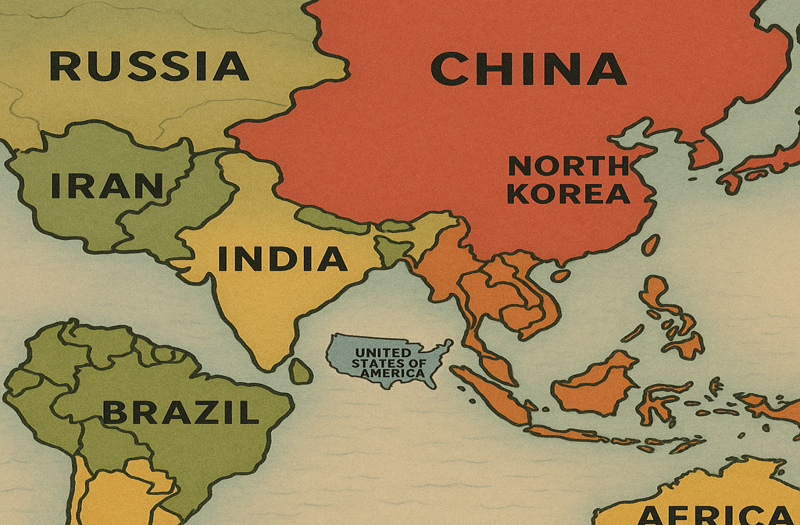People’s choice of words can be revealing. That’s certainly the case with respect to one of Donald Trump’s favorite slogans, “America First.”
In April 2016, Trump initially used the term in a campaign speech, proclaiming that “America First” would be “the major and overriding theme of my administration.” The following year, in his inaugural address, he promised that “a new vision will govern our land. From this day forward, it’s going to be only America first―America first.” Subsequently, he has employed the slogan frequently to describe his approach to foreign and domestic policy. Lawrence S. Wittner, The Ugly Origins of Trump’s “America First” Policy, Foreign Policy In Focus
America First is a slogan President Trump appropriated from the last century even though he says only he can decide what it means. When he claims to have ended 7 wars and tries to position himself at the front of the line for the Nobel Peace Prize, America First means keeping America out of foreign entanglements. When he bombs Iranian nuclear facilities and blows up a Venezuelan drug boat, America First seems to mean something else. While rhetoric suggests isolationism, U.S. military involvement persists.
Whatever America First means, the President’s signature economic policy of high tariffs and his penchant for embarrassing and arguing with our friends while praising our foes has led to an American Frost rather than the “First” he promised. Countries like India and South Africa, once our allies, are moving closer to China in an effort to hedge their bets in the event America cannot be trusted in the future. Many traditional allies in Europe and Asia are seeking alternative partnerships and regional security arrangements to mitigate the unpredictability of U.S. leadership. Analysts warn this could result in a progressively fragmented, less American-centric world order.
According to a recent Pew Research Center survey across 24 countries, more than half of respondents in 19 nations lacked confidence in Trump’s leadership on global affairs. Compared to 2024 (under Biden), global favorability toward the U.S. plummeted from about 51% to just 35%. This indicates a substantial erosion in America’s international image.
Trump’s “America First” stance, including unilateral trade wars and retreat from multilateral institutions, has accelerated the erosion of U.S. global leadership. As a result, China has positioned itself as a more stable global power, appealing to nations in the Global South and highlighting its multilateralism in contrast to American unpredictability.
Trump’s administration slashed funding for USAID and Voice of America, paused major global health programs (like PEPFAR), and withdrew from key institutions such as the WHO and UN bodies. These increasingly drastic shifts have weakened U.S. soft power and global influence.
Since President Trump took office in January 2025, America’s relevance and leadership on the world stage have declined in critical areas. Global public confidence and favorability toward the America have significantly deteriorated. U.S. leadership in multilateral systems is eroding, while rivals like China are gaining influence. Cuts to foreign aid and retreat from international institutions have weakened soft power. Though military engagement persists, both allies and adversaries view U.S. leadership as unreliable enough to spur strategic diversification. America is not disappearing but the era of stable, central U.S. global leadership appears to be waning. An American Frost is emerging, and that is not good for America in the long run.

